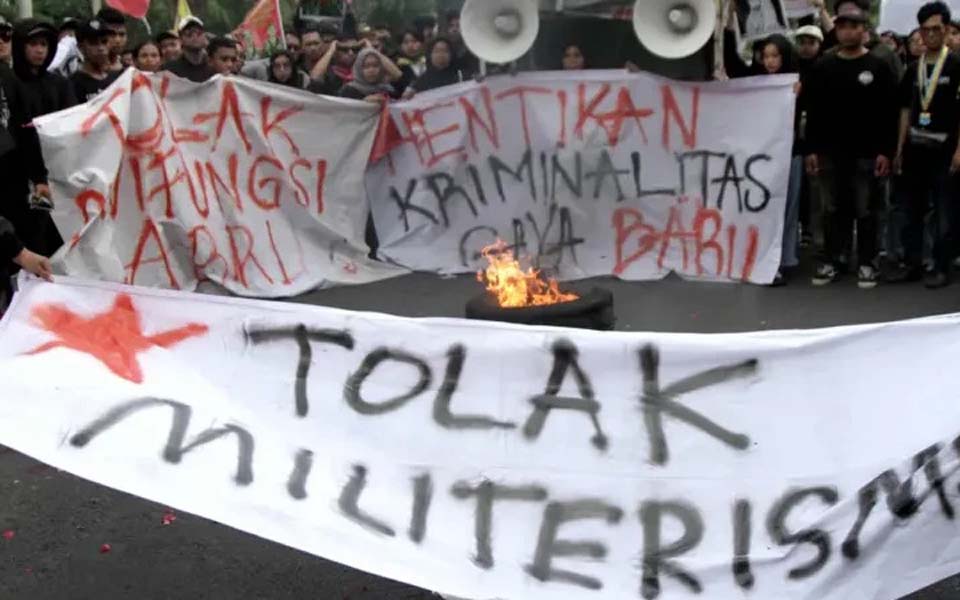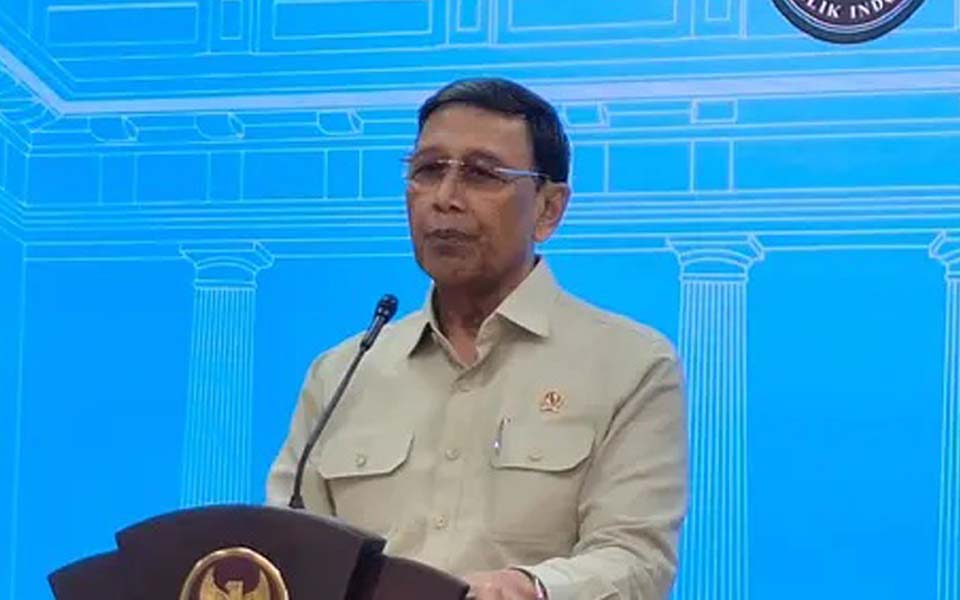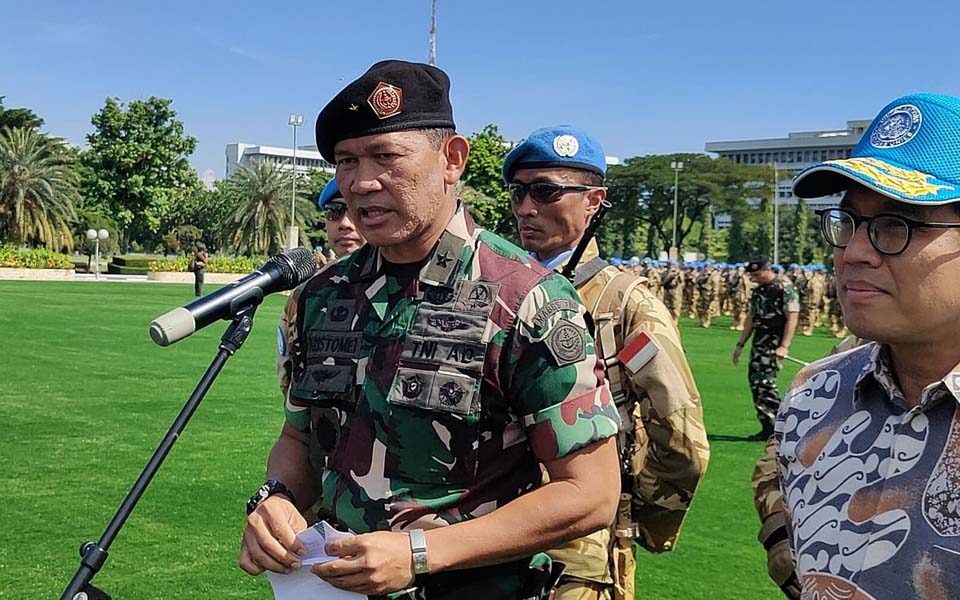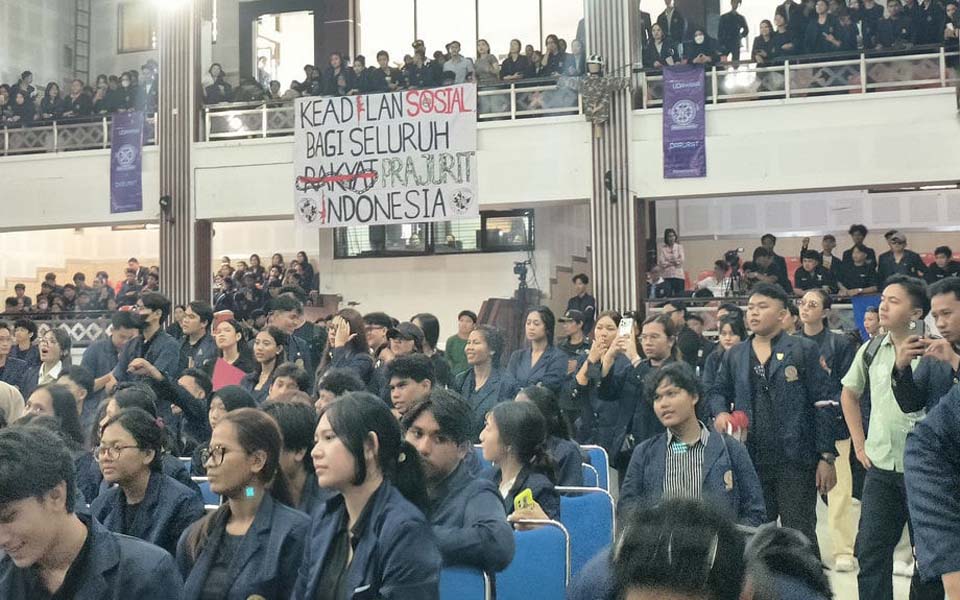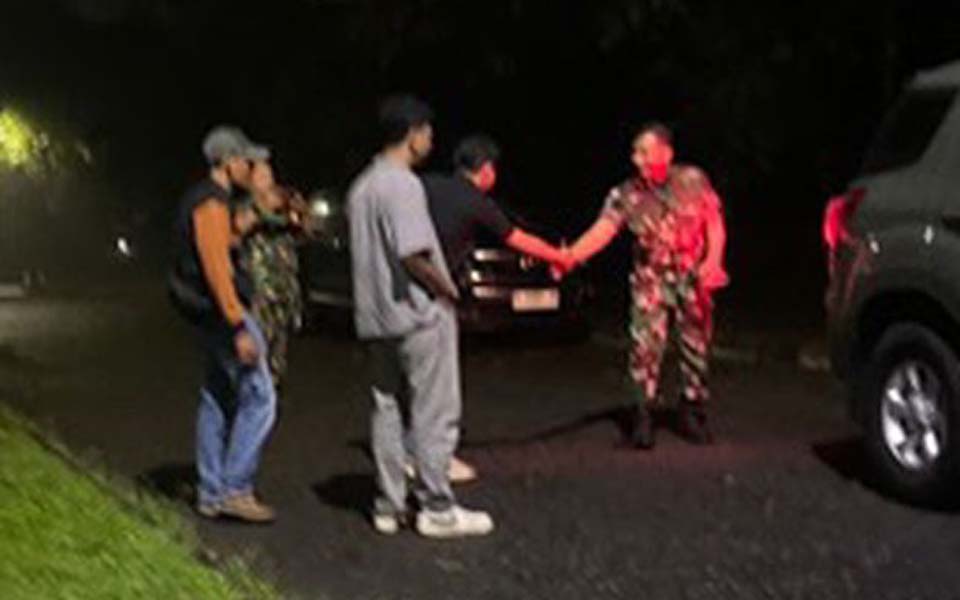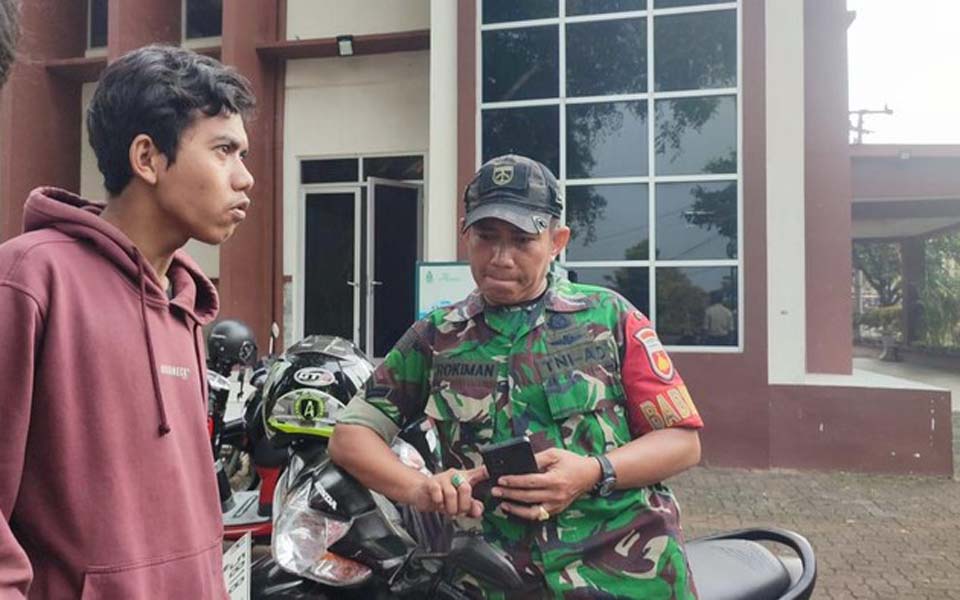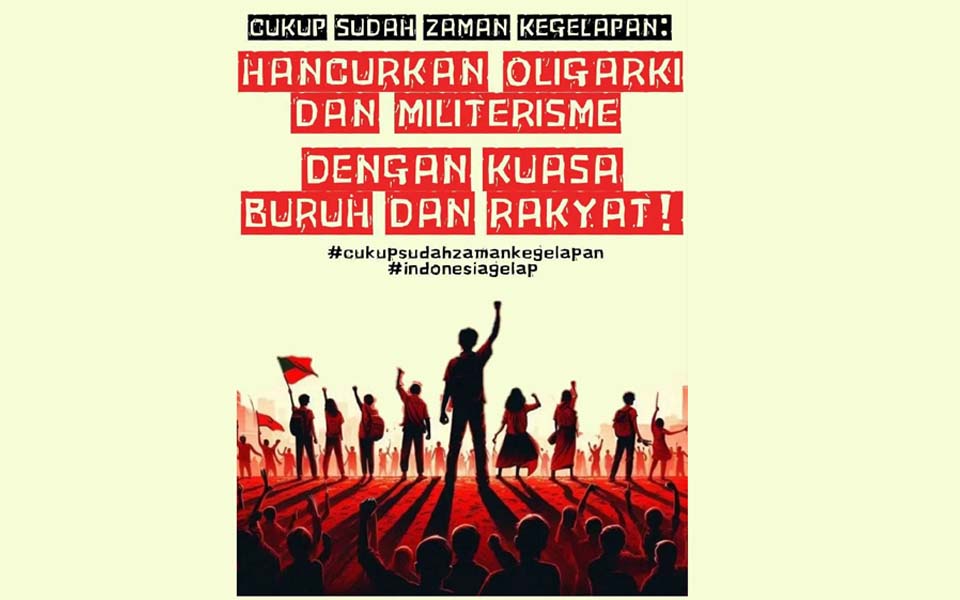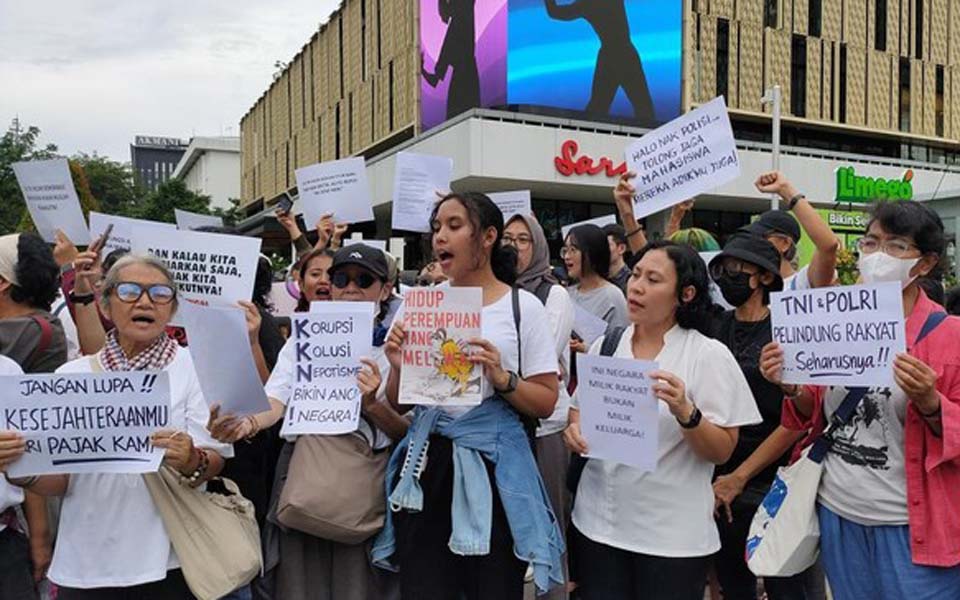Jakarta – Military observer Khairul Fahmi from the Institute for Security and Strategic Studies (ISESS) says that the plan to place active TNI (Indonesian military) officers in strategic positions in ministries and government institutions goes against the mandate of reformasi.
This plan also has the potential to open the way for the TNI to become involved in politics in the same way as the TNI’s dwi-fungsi [dual socio-political function] under the New Order regime of former President Suharto.
Fahmi also said that the involvement of the TNI in civilian affairs has shown a tendency to strengthen over the last four years under President Joko “Jokowi” Widodo’s administration.
“So this gives rise to the question, how should the government respond to growing concerns over this? Ideally of course, the government should not continue with the plan”, said Fahmi in a written release yesterday.
In formal terms, said Fahmi, the TNI’s dwi-fungsi was indeed abolished in concert with reformasi – the political reform process that began in 1998 – and the enactment of Law Number 34/2004 on the TNI (UU TNI).
Fahmi however believes that in reality the TNI’s involvement in civilian affairs has not entirely disappeared.
And over the last four years this has tended to strengthen. This has been marked by the large number of government programs and structural activities involving the TNI.
These include, among others, the involvement of the TNI through Memorandums of Understanding (MoU) between ministries and government institutions and the TNI headquarters.
“It is these things which have more or less influenced the public’s perceptions, which has still not recovered from the trauma of the bad practices of dwi-fungsi as a tenable form of militarism during the New Order period”, he said.
Fahmi acknowledges that there have been efforts by the government and TNI headquarters to convince the public that the planned placement of TNI personnel will not revive dwi-fungsi.
The problem is, he said, there is no one who can guarantee what will happen in the future bearing in mind that the leadership of the country changes every five years with the elections.
“There is no guarantee that these practices won’t still return in the future. After all, the way has already been opened”, he said.
He also believes that the plan will not resolve the basic problem of training TNI personnel and building its national defence capacity.
“Please reflect on the number of institutions that have posts which are currently allowed to be filled by TNI personnel, how often have we heard complaints about their [lack of] competency and skills”, he said.
According to Fahmi, efforts to reform the TNI internally could start with revising the UU TNI which is now 15 years old. He said that these revisions must block the possibility of dwi-fungsi reappearing again in any form.
According to Fahmi, TNI commander Air Marshall Hadi Tjahjanto was correct in publically raising the problem of many senior TNI officers having no jobs so that all parties can understand that the organisation of the TNI needs to be fixed. But, he said, the solution offered was inappropriate.
Instead of focusing on efforts to fix personnel management problems, the government has offered a solution which has created an uproar and concern among the public.
“There is no other choice for civil society groups but to protest long and loud against it”, he said. (nvt/wis)
[Translated by James Balowski. The original title of the article was “Pengamat: Pelibatan TNI di Urusan Sipil Cenderung Menguat”.]






